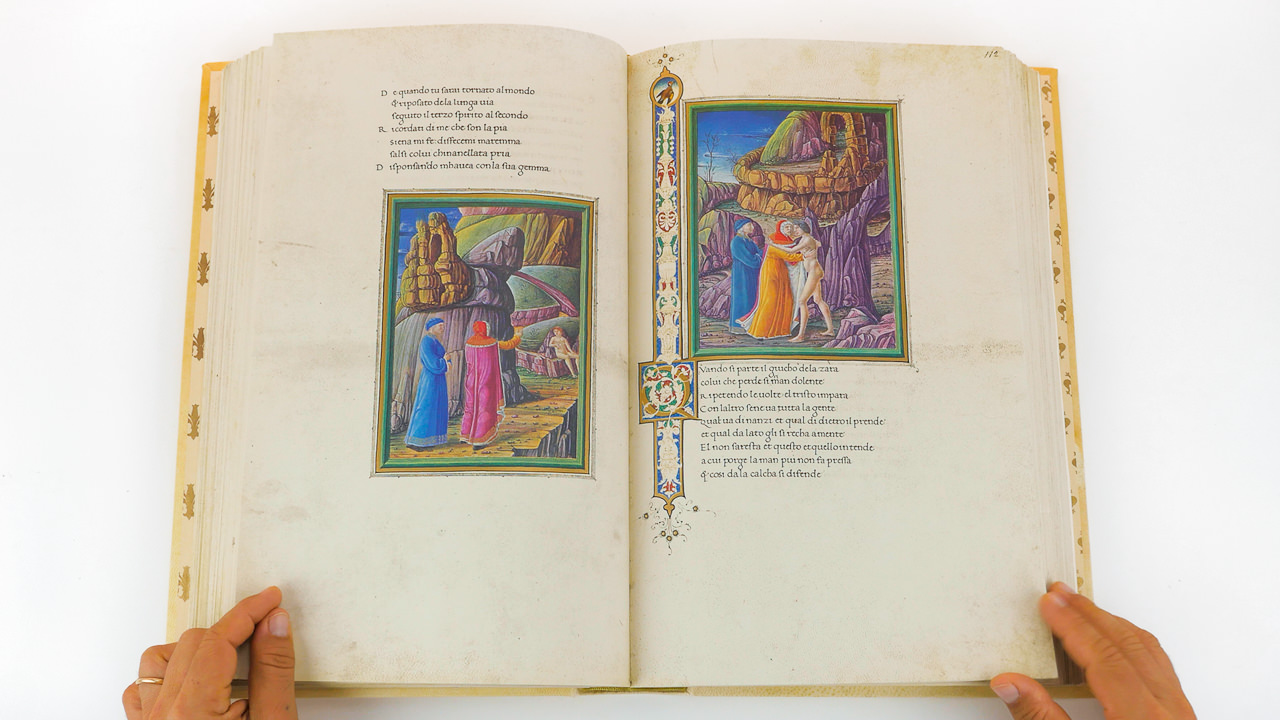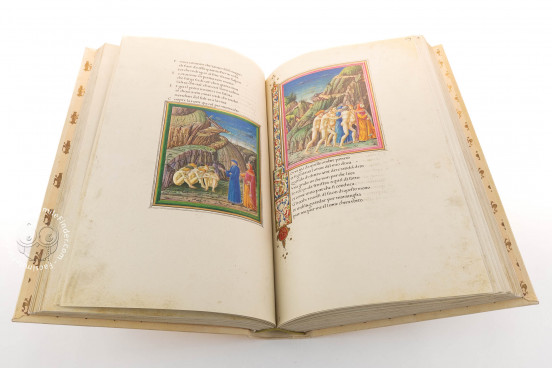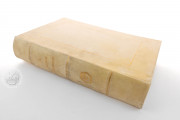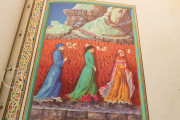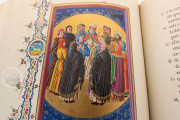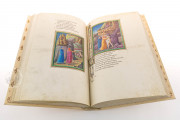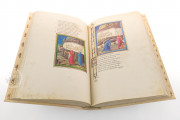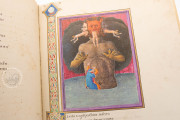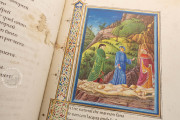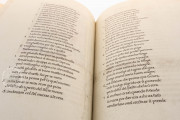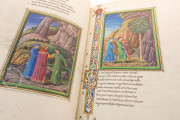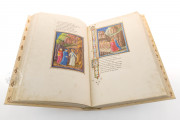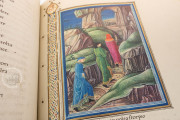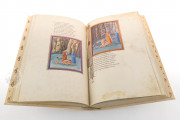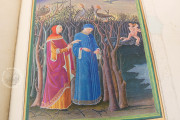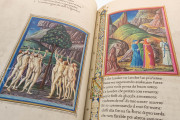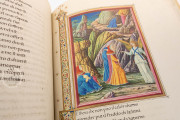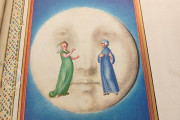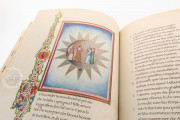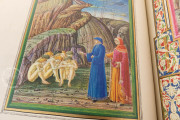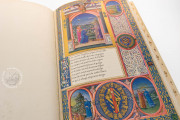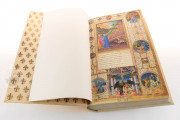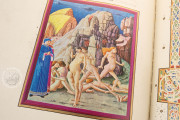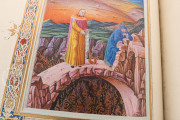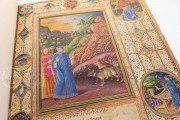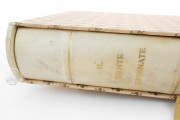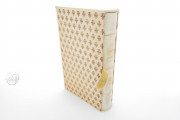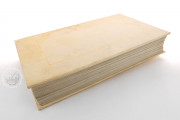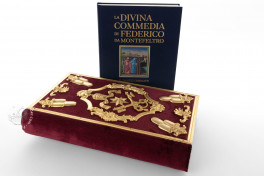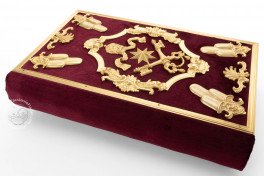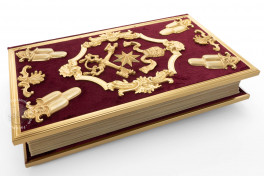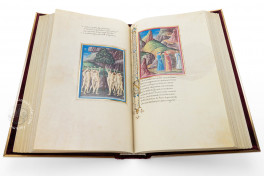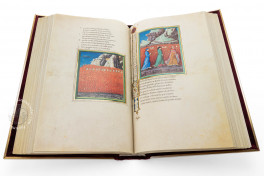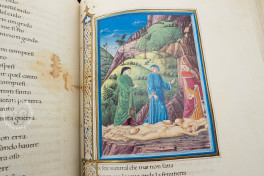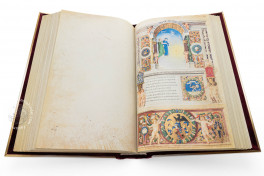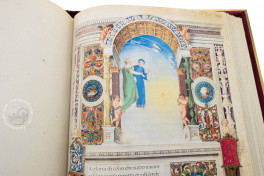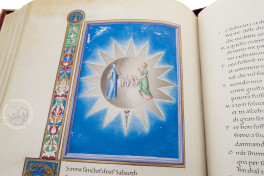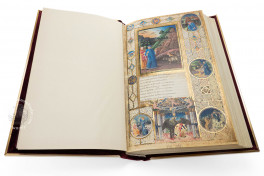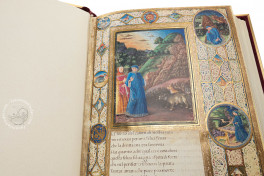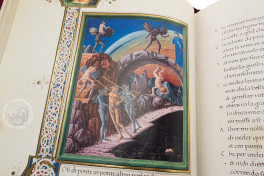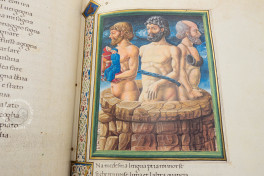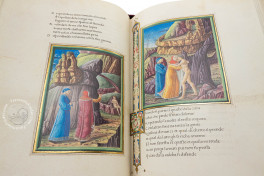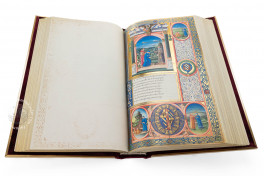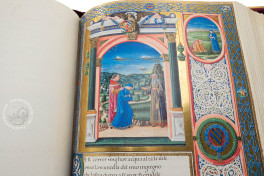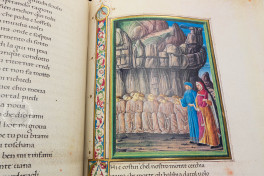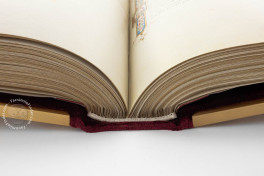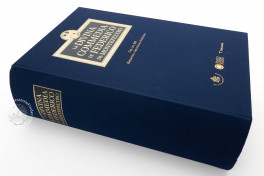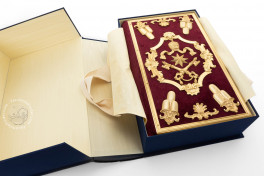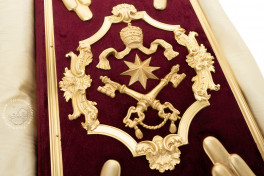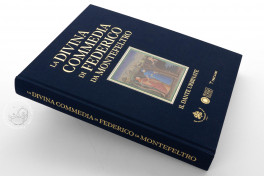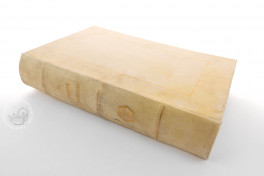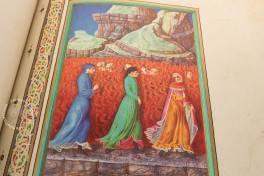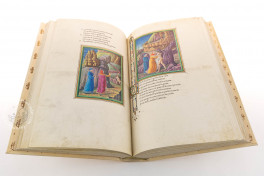The Urbinate Manuscript of Dante Alighieri's Divine Comedy was made for Federico da Montefeltro, Duke of Urbino. It was written at Federico's court at Urbino by Matteo de' Contugi da Volterra beginning in 1477 or 1478. Its illumination remained unfinished at the duke's death in 1482. It is an extremely handsome manuscript with 119 large miniatures illustrating Dante's long Christian moralizing poem that takes the poet and the reader on a journey through the underworld.
Most of the miniatures of Inferno and Purgatorio were executed by Guglielmo Giraldi and Franco dei Russi, both working with assistants, in the fifteenth century. The remaining miniatures were painted by Valerio Mariani, also working with assistants, in the early seventeenth century.
Highly Sought-After Court Illuminators
Gugliemo Giraldi had worked at the court of Borso d'Este in Ferrara before illuminating the Dante manuscript for Federico. He and his assistants, perhaps including Alessandro da Milano, worked first in Ferrara and then in Urbino. They provided the incipit page and most of the miniatures for Inferno and the incipit page and the first two miniatures of Purgatorio.
Giraldi was succeeded in 1480 or 1481 by Franco dei Russi, who—like Giraldi—had been employed at the d'Este court: he and his team are responsible for three miniatures in Inferno and most of the paintings in Purgatorio.
Valerio Mariani worked for decades in Venice before being summoned in 1603 by the last duke of Urbino, Francesco Maria Della Rovere (1548-1631), to Urbino, where he completed the manuscript by supplying some miniatures in Purgatorio and the lion's shares of the Paradiso images.
Majestic Images
The miniatures illustrating Dante's visionary text range from about half a page to nearly the full height of the text area. All of the illuminators depict Dante in blue robes and his guide, Virgil, in a red hood.
The figures of Dante and Virgil tend to dominate the scenes, but at times they are subsumed in the action of Dante's vision. For example, in the miniature for Inferno, canto 18, Giraldi shows crowds of panderers and seducers—attempting to flee from the lashes of devils—passing the poets, one group moving toward them and the other in the opposite direction (fol. 46v): the poets are only recognizable in the throng by their distinctive garments.
The settings for the scenes are often expansive, creating a landscape for Dante's vision not strictly derived from the text. The illustration of Inferno, canto 4, shows Dante and Virgil meeting the "virtuous pagans"—Homer, Horace, Ovid, and Lucan (fol. 9r). The scene is set in a deep landscape dominated by the seven-walled noble castle described in the text.
A Masterwork of Humanistic Script
The scribe of the Urbinate Manuscript, Matteo de' Contugi da Volterra, worked at the Gonzaga court at Mantua before Federico da Montefeltro employed him to write the Commedia. He wrote the poem's verses in Humanistic Minuscule in long lines (a single column) with the first letter—a majuscule—of each verse set off in the left margin. The text, spacious and elegant, appears on pages with generous margins.
A gold initial in a partial or full white vine-stem border introduces each of the poem's 100 canti. All of the minor decoration, which includes many iterations of Federico's coat of arms, the emblem of his membership in the Order of the Garter, and his motto, apparently was completed in the fifteenth century.
For the Library of a Humanistic Prince
Federico da Montefeltro (1422-1482) made his reputation as a mercenary military leader. He patronized the visual arts and built a magnificent library of classical and contemporary texts, famously eschewing printed books in favor of manuscripts.
The Vatican acquired the library of the dukes of Urbino in 1657. When the Urbinate Dante entered the Vatican, it was in a yellow brocade binding made at the behest of Della Rovere, which has since been replaced by a binding of red velvet with metal ornaments displaying the heraldry of Pope Clement XI (1649-1721).
We have 2 facsimiles of the manuscript "Divine Comedy - Urbinate Manuscript":
- Divina Commedia di Federico da Montefeltro facsimile edition published by Franco Cosimo Panini Editore, 2021
- Dante Urbinate della Biblioteca Vaticana facsimile edition published by Biblioteca Apostolica Vaticana, 1965

